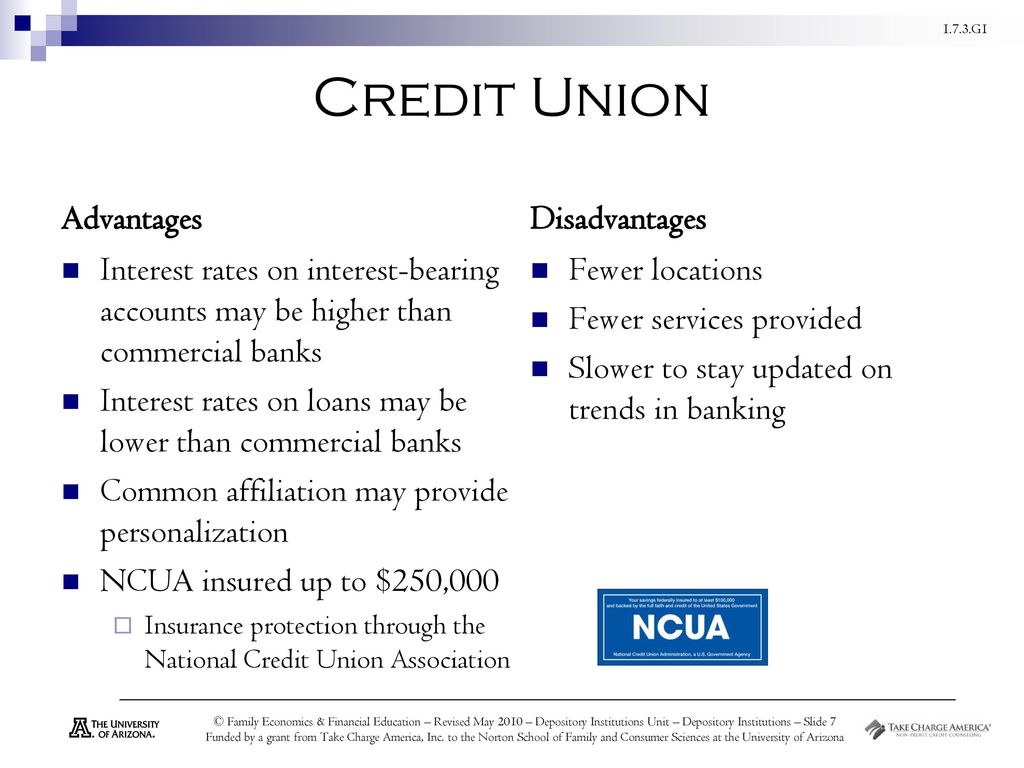Credit Union in Wyoming: Discover the Advantages of Member-Focused Banking
Credit Union in Wyoming: Discover the Advantages of Member-Focused Banking
Blog Article
The Ultimate Guide to Understanding Cooperative Credit Union

Credit history unions stand as distinct monetary entities, rooted in concepts of common support and member-driven procedures. As we browse via the intricacies of credit scores unions, an informative trip awaits to lose light on these member-focused organizations and just how they vary from traditional financial institutions.
What Are Credit History Unions?
Lending institution are member-owned banks that supply a variety of financial services to their members. Unlike traditional banks, credit scores unions run as not-for-profit companies, meaning their key emphasis is on serving their members rather than maximizing profits. Participants of a credit report union usually share a typical bond, such as benefiting the same company, belonging to the exact same area, or belonging to the exact same organization.
One of the crucial advantages of cooperative credit union is that they frequently supply greater rate of interest on savings accounts and reduced rates of interest on finances contrasted to banks. Wyoming Credit Union. This is since lending institution are structured to profit their participants straight, permitting them to hand down their profits in the type of much better rates and fewer charges. Additionally, cooperative credit union are recognized for their individualized customer support, as they prioritize developing partnerships with their members to understand their distinct financial needs and objectives
History and Development of Credit Scores Unions
The roots of member-owned economic cooperatives, understood today as cooperative credit union, trace back to a time when communities sought alternatives to standard banking institutions. The principle of credit rating unions come from the 19th century in Europe, with Friedrich Wilhelm Raiffeisen frequently credited as the pioneer of the participating financial motion. Raiffeisen founded the first identified credit report union in Germany in the mid-1800s, highlighting area assistance and self-help principles.
The advancement of cooperative credit union continued in The United States and Canada, where Alphonse Desjardins developed the first credit scores union in Canada in 1900. Shortly after, in 1909, the very first U.S. cooperative credit union was developed in New Hampshire by a team of Franco-American immigrants. These early lending institution run on the essential concepts of shared support, autonomous control, and member possession.
In time, lending institution have actually grown in appeal worldwide because of their not-for-profit framework, focus on serving participants, and providing affordable financial services and products. Today, lending institution play an important role in the monetary sector, providing obtainable and community-oriented financial choices for services and people alike.

Membership and Qualification Requirements
Membership at a cooperative credit union is typically restricted to individuals meeting certain eligibility requirements based upon the organization's founding concepts and governing requirements. These criteria frequently include variables such as geographic place, employment condition, membership in certain organizations, or association with specific groups. Cooperative credit union are known for their community-oriented technique, which is shown in their subscription requirements. Hybrid Line of Credit. As an example, some credit unions may only serve individuals who live or function in a certain area, while others may be tailored to workers of a particular firm or members of a particular association.
In addition, cooperative credit union are structured as not-for-profit companies, implying that their primary goal is to serve their participants as opposed to generate earnings for investors. This concentrate on member service often converts right into more tailored focus, lower costs, and competitive rate of interest prices on finances and cost savings accounts. By meeting the qualification requirements and ending up being a participant of a cooperative credit union, individuals can access a variety of monetary product or services tailored to their particular needs.
Providers and Products Supplied
Among the key elements that sets cooperative credit union apart is the diverse series of financial product and services they provide to their participants. Lending institution generally give conventional banking solutions such as savings and inspecting accounts, fundings, and credit report cards. Participants can likewise profit from financial investment solutions, consisting of retirement accounts and monetary preparation assistance. Lots of debt unions use affordable interest rates on cost savings accounts and financings, as well as lower costs compared to traditional banks.
Additionally, debt unions usually provide convenient online and mobile financial alternatives for participants to conveniently manage their funds. They might offer benefits such as shared branching, allowing members to you can look here access their accounts at various other debt unions across the country. Some credit scores unions likewise offer insurance policy products like home, life, and automobile insurance coverage to help members secure their assets and liked ones.

Advantages of Banking With Credit History Unions
When thinking about financial institutions, exploring the benefits of banking with debt unions discloses distinct advantages for participants best site seeking personalized solution and competitive rates. Unlike huge financial institutions, credit rating unions are member-owned and focus on structure strong connections with their members. Generally, financial with a credit union can give a more individualized, cost-effective, and member-centric economic experience.
Verdict
In final thought, credit report unions stand out as member-owned economic institutions that prioritize serving their members over maximizing earnings. With beginnings dating back to 19th century Europe, credit report unions comply with principles of common support and member possession.
Credit report unions are member-owned monetary organizations that provide a range of financial services to their members. The principle of debt unions stem in the 19th century in Europe, with Friedrich Wilhelm Raiffeisen commonly attributed as the pioneer of the cooperative financial motion.The evolution of credit scores unions continued in North America, where Alphonse Desjardins established the initial debt union in Canada in 1900. Credit score unions click reference usually provide standard banking services such as financial savings and inspecting accounts, car loans, and credit rating cards.When taking into consideration economic organizations, checking out the advantages of financial with credit scores unions discloses unique benefits for participants looking for individualized solution and competitive prices.
Report this page